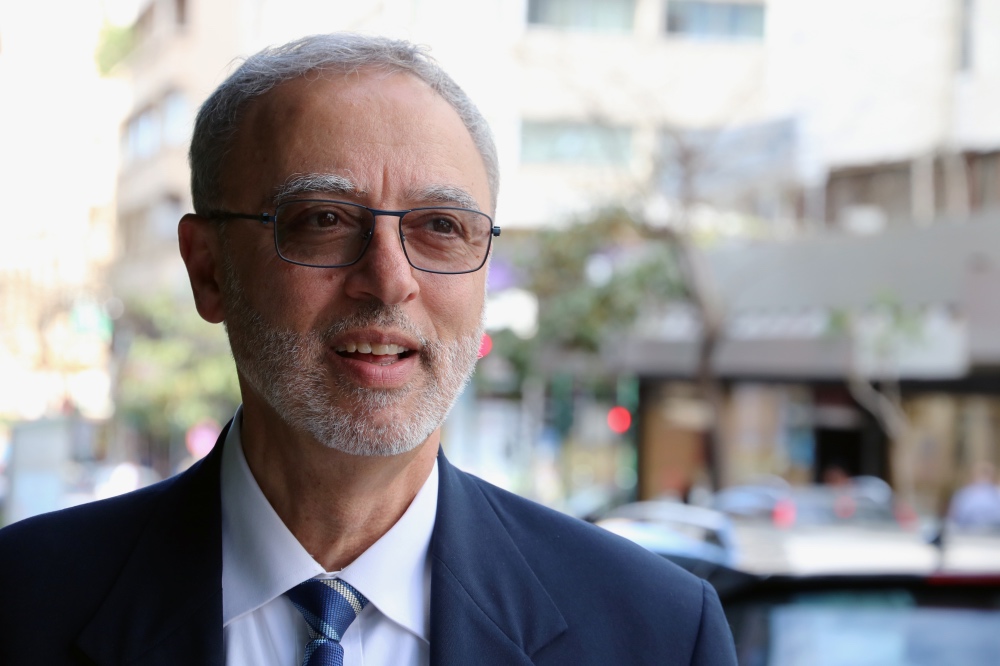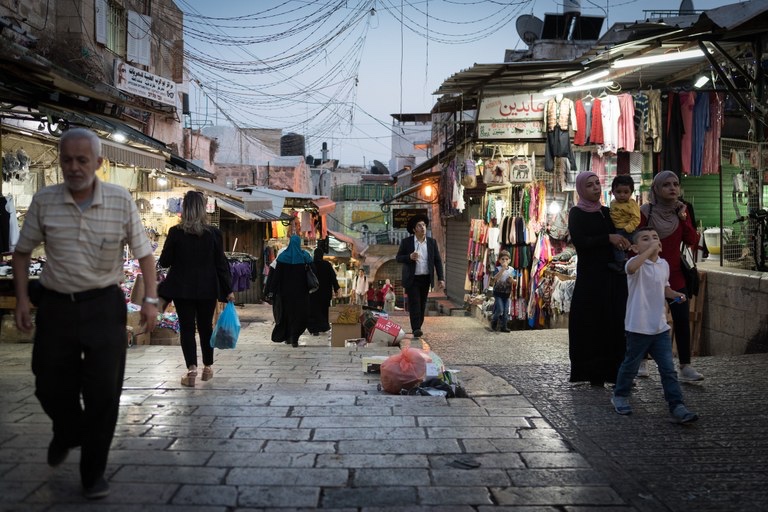
In the first of a two part article first published in whole on the World Council of Churches’ website to mark the World Week for Peace in Palestine and Israel this week, IVARS KUPCIS speaks with Palestinian Rev Dr Said Ailabouni, programme director for Europe and Middle East with the Evangelical Lutheran Church in America, about his life’s journey…
Born in Nazareth, Galilee, Rev Dr Said Ailabouni moved to the US at the age of 19 to become a physician. But he was so angry at God that he went to study theology instead, becoming a Lutheran pastor. Now he is leading the Middle East & Europe desk of the Evangelical Lutheran Church in America. Since leaving his hometown 50 years ago, he visits his Palestinian family regularly. As this week marks the World Week for Peace in Palestine and Israel, Ailabouni agreed to share some of his lifetime observations with the World Council of Churches…
What is the story of your family?
“My family lived in Tiberias by the Sea of Galilee until 1948 when they lost everything they had because of war, as Israel was taking over the region. They were told in April to leave and come back when the war was over. They found a refuge: the village Eilabun from which my last name comes, where my grandfather lived.
“At the end of October, the Israeli army came into the village where there was previously fighting between the Israeli and Arab armies. A massacre took place in Eilabun, where several innocent people were killed including one of my cousins, after which the Israeli army commanded everyone to walk to Lebanon. All our family, including my mother, our newborn sister and other siblings, ended up walking to Lebanon – in the cold, with no food. My father was sent to prison.
“When my family came back six months later, their homes in Tiberias were already occupied by settlers. So they went to Nazareth, where my father got a job and they were able to rent a small home. I was born there two years later.”

Rev Dr Said Ailabouni, director for Europe, Middle East & North Africa region at the Global Mission Unit of Evangelical Lutheran Church in America. PICTURE: Ivars Kupcis/WCC
What does it mean for you to be born in Nazareth, growing up in the same area where Jesus spent his childhood?
“To be honest, I never thought of it as special until later in my life. Our family is Greek Catholic. I went to Christian schools and I was quite religious at the time, so I knew the story of Jesus. We celebrated all the holidays but I did not think it was special to be living in the same town where Jesus lived until I went to the Unites States and people would ask me questions. I started to appreciate it more when I got older, especially becoming a pastor and being able to read the Bible, understanding both the region and geography as well as the people. The people have not changed – Palestinian people are like the people in the New Testament in many ways.”
“It was very enriching to go to the Lutheran seminary in St Paul, Minnesota – I was able to put theology with the Bible together, understanding that God is love. I was previously confused about God – in many cases I thought that God was an angry God, I was afraid of God. There were people who were saying that it was God’s will that Palestinians lose their land because it belongs to Jews. I did not like that, and I wanted to see it for myself if that’s really what it’s like in the Bible.”
Why did you decide to move to the USA?
“My dad died of cancer when I was six years old, and I wanted to become a doctor to heal people with cancer – that was my dream. As I was not accepted to study at a University in Israel, I decided to go to the US to go to college and study, becoming a medical doctor and then returning to Nazareth.
“But I also wanted to understand the Bible, as it was very confusing for me to see so many different teachings about the Bible when growing up. I had many questions. When I finished college as a chemistry major, I decided to go to seminary – to study the Bible, not necessarily to become a pastor.
“It was very enriching to go to the Lutheran seminary in St Paul, Minnesota – I was able to put theology with the Bible together, understanding that God is love. I was previously confused about God – in many cases I thought that God was an angry God, I was afraid of God. There were people who were saying that it was God’s will that Palestinians lose their land because it belongs to Jews. I did not like that, and I wanted to see it for myself if that’s really what it’s like in the Bible.
How did studies in the seminary affect your beliefs?
“Going to the seminary helped me to see God as the crucified God in Jesus, the God who suffers with the oppressed. Not the God who determines who should get what land, but the God who is on the side of people who are oppressed and occupied by others, the weak, women, children, the sick – all of those who are rejected by society.
“I understood God as the God who so loves the world that he goes all the way, suffering as the criminal when he is not guilty. I felt that my people are suffering in the same way – they did not deserve to lose their land, to become refugees, to be on a cross. I was angry at God for a long time, but then I realised through studying Scriptures that God is not a real estate God, but he actually is ready to die for the people who are oppressed. In fact, he suffers even though he does not deserve to suffer.
“But the cross is not the end – there is always Easter. On the third day God resurrected Jesus, and no matter what, God will always be victorious – which means I can live as a victorious person too. Not reacting to the suffering, but acting out of the sense that I am not a victim. Even though my family and my people were victimised – I can act and make a difference in the world. God has showed us what it means to love.”

Street in the Old Town Jerusalem. PICTURE: Albin Hillert/WCC
You are a Palestinian, lived most of your life in the US. What forms your identity today?
“Dietrich Bonhoeffer was in prison when he wrote a poem Who am I?, saying people saw him as strong when he felt down and discouraged, as they did not know the real him. At the end he asks ‘who am I’, responding – I am God’s child.
“I feel strongly that I belong to God’s kingdom, and God’s kingdom includes all people – of all religions, all nations, all tribes, and at the centre there is a loving God who cares for all people. Neither the US nor what is now Israel or Palestine feels like home to me, although I love both. I find myself wanting to help people who feel like outsiders to become more aware of God’s love for them and help them experience God’s kingdom.
“In my work now, for example, there is a ministry in Egypt that serves 35,000 refugees in Cairo. There are Muslims and Christians together, and they all feel like they are valued and have human dignity because of the way they are treated. When they leave the church compound, they feel they are oppressed, treated as outsiders, taken advantage of because they are refugees or because of the colour of their skin. But in that setting where they are being cared for, they are of great value and treated with respect. That’s where the kingdom of God is – when people treat each other with respect. Because we are all created in God’s image, and we are all God’s children.
What are your current responsibilities working with Middle East region at the Evangelical Lutheran Church in America?
“I am programme director for Europe and Middle East – my job involves building relationships with church leaders, supporting and supervising our personnel who are overseas, including the Middle East. Also coordinating our financial support, such as helping to deal with the current huge influx of refugees, or gender justice, helping women and children who have no capacity to support themselves and are often abused in a world that takes advantage of them.
“In the Middle East we are primarily focusing on refugees and migrants, being there and supporting them. The Christian presence in the Middle East is not huge, and yet our Christian companions are important in the world, and we want them to know they are not alone.
“One of our values is also Christian–Muslim relationships, and our companions in the Middle East are working hard to enhance those relationships. We are supporting this work both there and in the US.”
This article was first published on the World Council of Churches’ website.
Part two follows tomorrow (20th September)…





